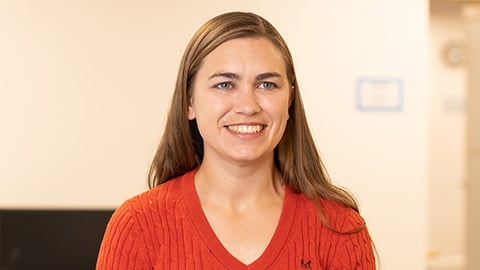
Future Surgery 2023: trends that are reshaping the future of healthcare
November 2023
by Sarah Knight, Head of Healthcare Technology at 42T
During a recent event dedicated to the future of surgery, we experienced the advancing landscape of surgical practices and glimpsed the exciting possibilities that lie ahead.
Sarah Knight recently attended the Future Surgery 2023 event held in London, where cutting-edge innovations and emerging trends in the field of surgery took centre stage.

The event was combined with three partner conferences, uncovering a myriad of themes that are reshaping the landscape of patient care.
Prioritising workforce wellbeing and training
A notable emphasis at the conferences was on workforce wellbeing and training. The health impact of surgical smoke on clinical staff has garnered significant attention recently, with plumes from heat-generating techniques such as electrosurgery being recognised to contain carcinogens, toxins, pathogens, and harmful particulates.
A widely quoted figure is that the smoke produced in one day in the operating room is equivalent to 27-30 cigarettes. This has prompted the introduction of new technologies aimed at safely removing surgical smoke.
%20small.webp?width=734&height=490&name=shutterstock_1944151078%20(1)%20small.webp)
Moreover, the exhibition floor showcased a wave of ergonomic surgical tools, with a spotlight on designs promoting gender inclusivity. This is a welcome trend, in a field where the percentage of consultants who are female is growing.
The display also featured an array of innovative surgical training aids, ranging from basic, low-cost systems for frequent practice to fully digital platforms connecting trainees and trainers remotely.
Sustainability takes centre stage
The commitment to sustainability echoed throughout the conference, with suppliers aligning themselves with UK NHS goals to become net zero by 2045. Exhibitors were eager to present new, eco-friendly products, many of which included explicit sustainability analyses or lifecycle assessments in their marketing materials.
This strong focus on sustainability reflects a growing awareness within the healthcare community of the environmental impact of medical practices.
Rise of virtual wards
Virtual wards emerged as a recurring topic, with a few forward-thinking Trusts leading the way in their successful implementation. Virtual wards allow patients to be monitored remotely in their homes, helping speed up their recovery in familiar surroundings while freeing up hospital beds for patients who need them most.
Companies in the medical device sector expressed enthusiasm about incorporating the necessary connectivity into their products to support the evolution of virtual wards.
%20Medium.jpg?width=733&height=410&name=shutterstock_2303644671%20(3)%20Medium.jpg)
This shift indicates a potential transformation in patient care delivery, with technology bridging the gap between healthcare providers and patients and freeing up resources.
Ultrasound imaging across specialisms
The expanding use of ultrasound imaging was a noteworthy trend discussed across various specialisms. While the benefits of ultrasound are increasingly recognised, its underutilisation in the past has resulted in training gaps.
%20small.webp?width=698&height=467&name=shutterstock_1835819848%20(1)%20small.webp)
Companies showcased exciting new products and acknowledged the importance of providing high-quality training to maximise the potential of ultrasound imaging across diverse medical fields.
An evolving future landscape
This event was a window into the evolving world of surgical techniques, shedding light on pivotal developments that are shaping the course of healthcare.
The conference displayed the sector's dedication to reinventing and refining current methods from emphasizing staff welfare and adopting eco-friendly methods to exploring the possibilities of digital patient care units and broadening the application of ultrasound imaging.
Sarah concludes, "As developments gather speed, the future of surgical procedures promises advances that not only uplift patient wellbeing but also foster a healthcare environment that's both sustainable and accessible for patients and practitioners."
"Our team has decades of experience building medical instruments and devices, surgical tools, diagnostics and drug delivery devices so we're ideally positioned to assist with the product and process development challenges."
Read a selection of our case studies and insights here. Subscribe to our healthcare newsletter.

If you would like to find out more, please contact Sarah:
answers@42T.com | +44 (0)1480 302700 | Sarah Knight | LinkedIn
Sarah is a chartered engineer (IMechE). She holds an honours degree in Biomedical Engineering and a Master’s degree in Mechanical Engineering from Cambridge University.
She is also an experienced project manager with particular expertise in medical device development and has guided products through all stages of development from innovative concepts to detailed design, regulatory approval, and troubleshooting in manufacture.
Share this article:
Related Articles

Healthcare & Life Sciences
The future of home healthcare: trends and innovation

Healthcare & Life Sciences
Right to repair: reshaping the medical equipment industry

Healthcare & Life Sciences
The hidden risks with smart injectors - is high-tech sacrificing usability?

What will you ask us today?
We believe in asking the right questions to drive innovation; when we know the right questions, we generate the ideas to answer them.

